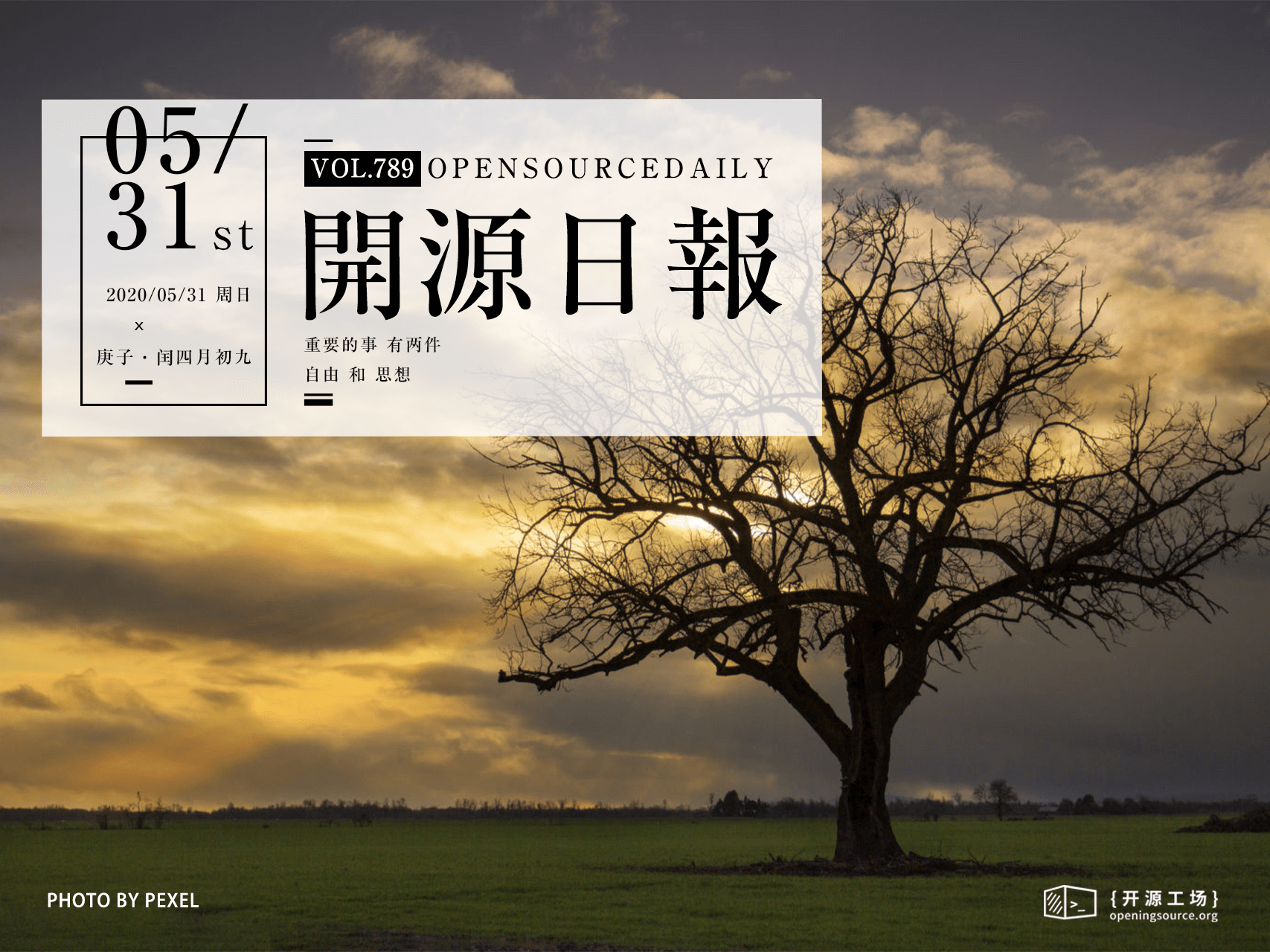今日推薦開源項目:《virtual-environments》
今日推薦英文原文:《Trump signs an executive order taking direct aim at social media companies》

今日推薦開源項目:《virtual-environments》傳送門:GitHub鏈接
推薦理由:本倉庫包含可以用於執行 GitHub Actions 所需要的各種虛擬環境,包括 ubuntu,macOS,windows系統. 這將讓開發者可以更輕鬆的跨平台運行自己的項目.
今日推薦英文原文:《Trump signs an executive order taking direct aim at social media companies》作者:Taylor Hatmaker
原文鏈接:https://techcrunch.com/2020/05/28/trump-social-media-executive-order/
推薦理由:周四,特朗普總統簽署了一項行政命令,針對互聯網公司賴以保護其免受用戶創建內容責任的法律條文。總統長期以來指責諸如 Twitter,YouTube 和 Facebook 這樣的大型社交平台公司故意壓制保守派觀點,這會對這些社交平台產生巨大的影響.
Trump signs an executive order taking direct aim at social media companies
On Thursday, President Trump signed an executive order targeting the legal shield that internet companies rely on to protect them from liability for user-created content. That law, known as Section 230 of the Communications Decency Act, is essential to large social platforms like Twitter, YouTube and Facebook, the kind of companies the president has long accused, without evidence, of deliberately suppressing conservative views.Trump was joined during the signing by Attorney General William Barr, who has previously expressed interest in stripping away or limiting the same legal protections for tech companies.
We previously examined a draft of the executive order that』s nearly identical to the just-released final version, embedded below. Among other things, the draft argued that platforms forfeit their rights to legal protection when they moderate content, as in the case of Twitter modifying the president』s tweet with a fact-checking disclaimer.
This will be a Big Day for Social Media and FAIRNESS!
— Donald J. Trump (@realDonaldTrump) May 28, 2020
「The choices Twitter makes when it chooses to edit, blacklist, shadowban are editorial decisions, pure and simple,」 Trump said during the signing. 「In those moments, Twitter ceases to be a neutral public platform and they become an editor with a viewpoint. And I think we can say that about others also, whether you』re looking at Google, whether you』re looking at Facebook.」
Tech companies and internet rights advocates believe that interpretation of Section 230 inverts the original spirit of the act. They say Section 230 was designed to protect internet companies from being sued for the content they host while also empowering them to make moderation choices without being liable for those decisions.
Twitter itself called the order a 「reactionary and politicized approach to a landmark law.」 Facebook also released a statement, asserting that the company 「believe[s] in protecting freedom of expression on our services, while protecting our community from harmful content including content designed to stop voters from exercising their right to vote.」
This EO is a reactionary and politicized approach to a landmark law. #Section230 protects American innovation and freedom of expression, and it』s underpinned by democratic values. Attempts to unilaterally erode it threaten the future of online speech and Internet freedoms.
— Twitter Public Policy (@Policy) May 29, 2020
Google also weighed in against the order. 「We have clear content policies and we enforce them without regard to political viewpoint,」 a Google spokesperson said. 「Our platforms have empowered a wide range of people and organizations from across the political spectrum, giving them a voice and new ways to reach their audiences. Undermining Section 230 in this way would hurt America』s economy and its global leadership on internet freedom.」
While the idea of dismantling Section 230 does pose an existential threat to internet companies, it』s not clear that the White House will be able to actually legally enforce its threats. But even if the order doesn』t result in substantial repercussions for social media companies, it might serve to intimidate them from further enforcing platform policy decisions like ones that inspired the president to retaliate against Twitter this week.
Going to war with Twitter, Trump threatens critical social media legal protections
On Tuesday, Twitter added warning labels to two tweets from the president that made false claims about vote-by-mail systems. The labels, which did not hide the tweets or even actually outright call them false, pointed users toward a fact-checking page. The move enraged the president, who lashed out at the company through tweets, specifically targeting Yoel Roth, Twitter』s head of site integrity.
The executive order makes it clear that the president』s spat with Twitter inspired the action, though some of its language is likely recycled from an abandoned effort at a similar order last August.
「Twitter now selectively decides to place a warning label on certain tweets in a manner that clearly reflects political bias,」 the unusual order reads. 「As has been reported, Twitter seems never to have placed such a label on another politician』s tweet.」
Civil rights groups and internet freedom watchdogs denounced the order Thursday, with Oregon Senator Ron Wyden, the co-creator of the law in Trump』s crosshairs, denouncing his actions as 「plainly illegal.」
「As the co-author of Section 230, let me make this clear — there is nothing in the law about political neutrality,」 Wyden said of the order.
「It does not say companies like Twitter are forced to carry misinformation about voting, especially from the president. Efforts to erode Section 230 will only make online content more likely to be false and dangerous.」
Whatever happens with Trump』s big move against social media companies, it』s likely to energize the president』s base and his allies in Congress and other corners of the government around the issue. And even if adding politically advantageous stipulations to Section 230 proves legally difficult or untenable for the White House, the threat may allow the president to wield new power over some of tech』s most powerful, often untouchable companies just the same.
下載開源日報APP:https://openingsource.org/2579/
加入我們:https://openingsource.org/about/join/
關注我們:https://openingsource.org/about/love/
